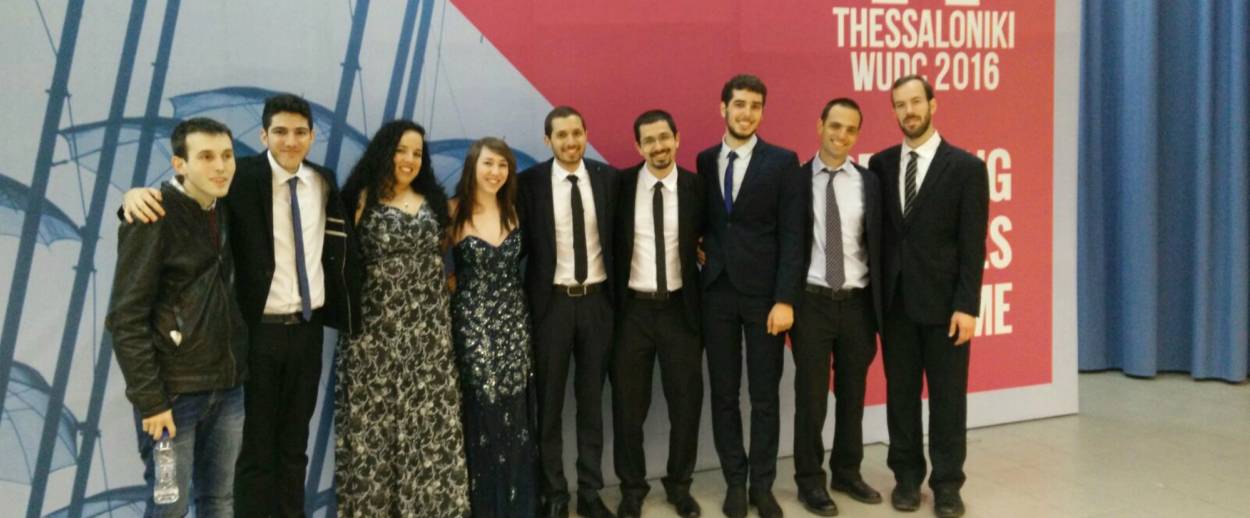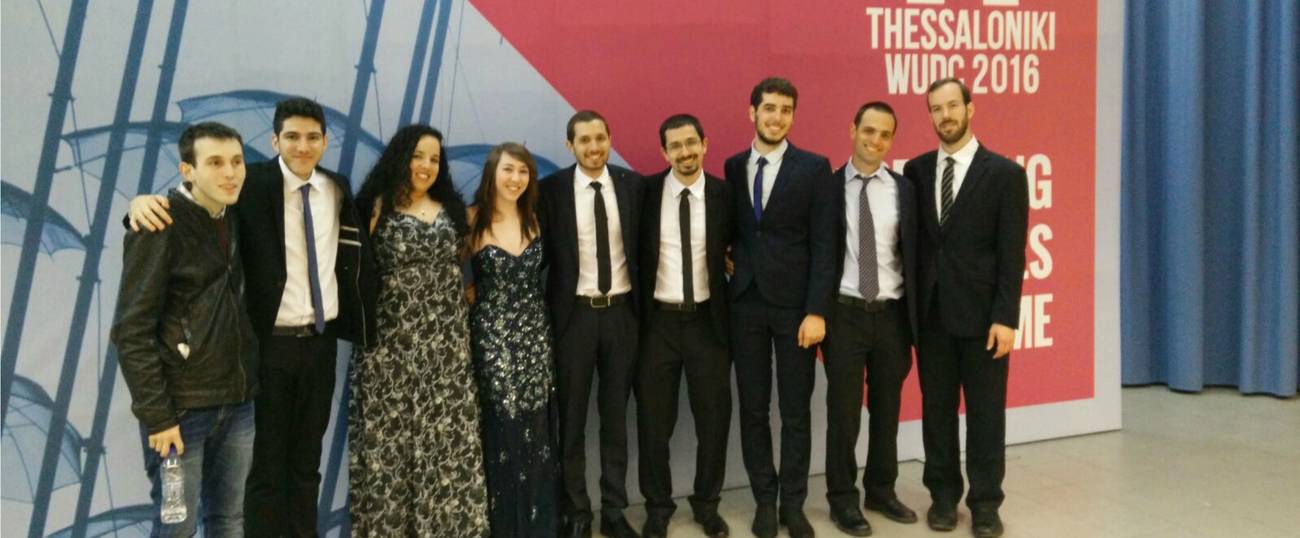Israeli Debate Teams Achieve Record Showing at World University Championship
Israel showed that it is well on its way to becoming a debating powerhouse after breaking through against native English-speaking teams




Israel has long been a force to be reckoned with in the world of competitive debating. At last year’s European Championship in Vienna, debaters from Tel Aviv University were declared victors in the English as a Second Language (ESL) category, while another Tel Aviv team reached the Open Final against native Anglophones from Scotland and Ireland. Last week, during the 2016 World University Debating Championship in Thessaloniki, Greece, members of the Israeli Debating League progressed deeper into the tournament than ever before in their quest to oust teams of native English speakers and capture the trophy.
The tournament in Greece marked a return to world debating for the Israeli league, after its exclusion from the previous year’s tournament in Kuala Lumpur because of the refusal of Malaysia to recognize Israel. At Thessaloniki, Israel was represented by 12 teams, each comprising university students. After nine rounds, it was announced that three Israeli teams had reached the “open break,” consisting of the top 48 teams (of nearly 400 attending) from across the world. Israel has thrice won in the ESL trophy in the last decade, but this was the first time that Israelis progressed to the runoff towards the Open Final at the World Championship against native Anglophone teams.
In competitive debating, teams of two argue either for or against a motion announced 15 minutes before the start of each round (they cannot pre-select a side, and cannot consult the Internet at any time before or during a round). Motions can cover a smorgasbord of topics; in Thessaloniki, the topics debated included American foreign policy, feminist iconography and, in the grand final, the merits of Marxist revolution.
All three Israeli teams won their first debate of the runoff. The victory of the Hebrew University’s Benji Kalman and Eitan Har-Oz was all the more remarkable because Har-Oz refused to violate Shabbat and therefore spoke without writing any notes, ordinarily an essential part of delivering a speech.
In the following “Octo Finals,” the stage before the quarterfinals, Hebrew University and Tel Aviv B (Stav Singer and Monica Forman) were knocked out. Tel Aviv A, represented by Ayal Hayut-man and Dan Lahav, won their quarterfinal matchup with speeches in support of a black secessionist state on the soil of the United States. They were eventually defeated in the semifinals by Sydney and a team ostensibly representing Serbian college Visoka škola PEP, a controversial ad hoc outfit that enabled two British debating titans, who had already graduated from U.K. universities, to compete at a university championship.
Despite falling at the penultimate hurdle, a trophy was nevertheless returned to Israel:Hayut-man was declared ESL Best Speaker and his partner Lahav the runner-up.
Hayut-man said their success, and that of Israeli teams in general, is the “collective achievement” of the entire Israeli league. It is partially derived, he believes, perhaps counter-intuitively, from Israel’s relative geographic isolation from a network of clubs in Europe, which has forced the league to “practically develop itself.”
Debating is an increasingly popular activity in Israel, and in recent years the government has started encouraging it at high schools, tapping into a rich pool of talent. But further change is required in order to unleash Israel’s full potential at the university level. Michael Shapira, the chief adjudicator of last year’s European championship in Vienna, stresses that debating in Israel remains the preserve of an affluent class. The need to self-fund flights abroad to compete in Europe places a big constraint on potential debaters, he argues. “It would be good if there were access to budgets, which could turn Israeli debating into something less dependent on personal socio-economic status and more on the intellect of the speakers,” he said.
The World University Debating championship was ultimately won by a team from Harvard. Yoni Cohen-Idov, European Open Finalist in 2010 and formerly coach of Tel Aviv, is confident that an Israeli team will win either the European or world championships in the coming years. He attributes Israel’s success to the commitment of its former champions to invest in coaching the next generation of debaters. “This cycle isn’t going to break any time soon,” he vowed.
The world championship has never been won by a country from outside the Anglosphere. If the Israeli debating league has any say in the matter, that might yet be able to change.
Eylon Aslan-Levy is an Israeli news anchor and political commentator. He is a graduate of Oxford, Cambridge and the IDF.